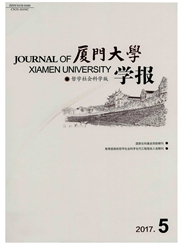

 中文摘要:
中文摘要:
财政分权既促进了中国经济增长,但也可能形成有偏的经济激励,形成负面产出。基于1985--2009年中国省际数据,利用Simar与Vanhems(2012)所提出的条件方向性距离函数(conditional directional distance functions),可测算以财政分权为条件并包含财政分权正面产出与负面产出的经济增长效率。以此为基础,可进一步检验财政分权与经济增长效率之间的非线性关系,估算面向经济增长效率的最优分权程度。实证研究表明,如果以经济增长效率为目标,当前我国大部分地区存在“过度分权”,而面向经济增长速度的最优分权水平也会高于面向经济增长效率的最优分权水平。
 英文摘要:
英文摘要:
Fiscal decentralization has greatly promoted China's economic growth but it is likely to bring about biased e- conomic incentives and bad outputs. Based on China's provincial data from 1985 to 2009, this paper utilizes the conditional directional distance functions formulated by Simar and Vanhems (2012) to calculate the economic growth efficiency which depends on, and which includes the positive and negative outputs produced by, fiscal decentralization. It examines the non- linear relation between fiscal decentralization and economic growth efficiency and estimates the optimal level of decentraliza- tion for economic growth efficiency. Our empirical analysis indicates that there has been "over-decentralization" in most re- gions of China in terms of economic growth efficiency, and that the optimal level of decentralization for economic growth speed is often higher than that for economic growth efficiency.
 同期刊论文项目
同期刊论文项目
 同项目期刊论文
同项目期刊论文
 期刊信息
期刊信息
